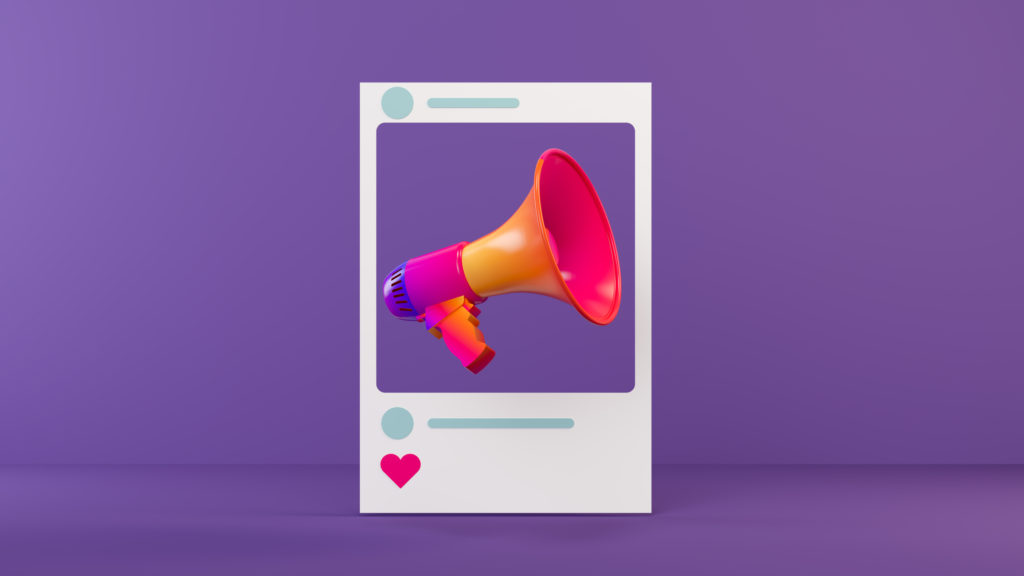
With more people using search engines and social media to browse, research, and purchase products and services, paid advertising should be a key part of your marketing strategy to boost your business and attract ideal consumers. When comparing search vs. social, search is more effective for some online objectives while social may be a more suitable choice for others.
We share the key characteristics of Paid Search and Paid Social, and how both can work for your small business.
What is Paid Search?
Paid search, Search Engine Marketing (SEM) or Pay-per-click (PPC), is a form of digital marketing where search engines, such as Google or Bing, permit advertisers to place adverts directly on their search engine results page (SERP). The SERP, is a page full of listings related to a user’s search query, it displays both organic results and paid results although paid ads are displayed at the top of the page.
Paid search ads take up the first three slots on the SERPs. These ads appear when users search using keywords or phrases relevant to your business and its offerings. The goal of paid search advertising is to drive traffic to a website by paying search engines to display their ads higher on relevant SERPs.
Types of Paid Search Ads
- Search Engine Text Ad (PPC)
- Google Shopping
- Native Ads
- Retargeting
- Display Ads
- Inbox Ads
- Search Engine Results Page
Why Paid Social?
- Guarantees your ad receives a lot of impressions and providing you have selected your audience correctly; it will be seen by the right people.
- It has an extremely wide customer reach which helps increase brand awareness and overall online visibility. It is a great way to attract new consumers and increase your social media following.
- Each social media platform offers different ad formats that provides more room for creativity.
- Paid social enables you to define and target your audience based on their age, location, education as well as likes and dislikes. Additionally, many social media platforms (including Facebook) allow you to retarget users who have previously visited your site and/or made a purchase.
- Social Media advertising tools enable you to research competitors’ latest trends and activities.
- Providing valuable content through paid social ads can increase consumer trust and brand awareness.
- Social media marketing is one of the least expensive types of advertising available.
What is the difference between Paid Search and Paid Social?
The main difference between paid search and paid social is they are two separate ad networks, which determine where and how the ads are displayed. Additionally, consumers use search engines and social media for different reasons and in different ways.
Paid search is a short-term strategy that is responsive to a customer’s wants or needs; essentially the customer is coming to you when searching for a product or service through a search engine. On the other hand, paid social is a more proactive marketing strategy where you are reaching out to your customers to promote your business through social media advertisements.
Paid social ads are best for building relationships and generating interest from targeted customers, whereas paid search ads are best for attracting customers who know exactly what they want and are actively searching for it.
Although both search engines and social media platforms have detailed ad targeting options, they do vary depending on the ad network. Paid search targets consumers based on the keywords and phrases they use to search for a product, whilst paid social targets consumers based on their demographics and interests.
The main advantage of paid social ads compared to paid search ads is that they allow advertisers to reach out to their potential customers through visual ads such as images, videos, animations, etc.
This not only makes the brands look visually attractive but also increases the likelihood of generating clicks from users.
Which is better for small businesses?
To get the most out of your marketing efforts, you should really advertise on both search engines and social media. When you use a mixture you can reach more consumers and gain the attention of your audience at each stage of the buyer journey.
Paid social ads are great to target consumers at the beginning of their purchase process (awareness and consideration stage), meanwhile paid search ads are best to target users who are aware of what they need and are ready to purchase (decision stage).
Nevertheless, it is not always feasible to pay for both social and search advertising in which case you need to choose which would be most beneficial for your specific business goals and which network is the most efficient way to reach your ideal customers. For example, if your goal is to increase leads you will probably want to invest in paid search advertising to gain high visibility.
You should consider using paid search if these are your business goals
- You want to see immediate results.
- You want to earn more website traffic and clicks.
- You want to increase your online visibility and competitiveness on search engines.
You should consider using paid social if these are your business goals
- You want to increase brand awareness and capture new subsets of customers.
- You want to create engaging ads that will resonate with your target audience.
- You want your ads to contain visual elements.
- You want to target a specific group of consumers on social media.
Do you want to be successful in your digital marketing campaigns? Get in touch with our experts today for a free consultation.




